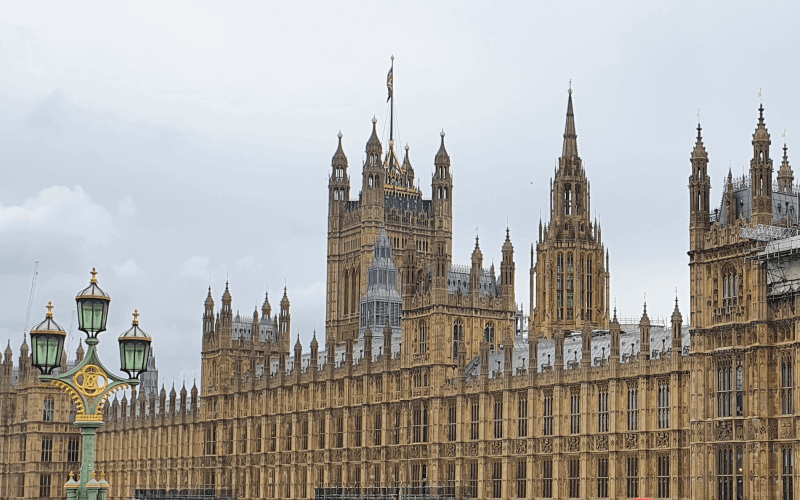Government plans to expand the number of trials and other criminal hearings carried out remotely through video and telephone links will expose disabled defendants to widespread discrimination and injustice, campaigners have warned.
Disabled people’s organisations (DPOs) and criminal justice campaigners said this week that defendants with learning difficulties, who are neurodivergent, or experience mental distress will be particularly at risk of unfair trials if the plans become law.
They spoke out as the police, crime, sentencing and courts bill continued its penultimate stage in the House of Lords, having already been approved by MPs.
The bill includes a clause that will allow video and telephone links for a wide range of trials and other criminal hearings, relying only on the judge to identify defendants with learning difficulties, who are neurodivergent or who have mental distress.
But organisations including Fair Trials and the Neurodivergence in Criminal Justice Network, and DPOs such as Disabled People Against Cuts, Greater Manchester Coalition of Disabled People, Inclusion London, National Survivor User Network and Disability Rights UK (DR UK) say this is “completely insufficient protection”.
Kamran Mallick, DR UK’s chief executive, said: “This provision discriminates against disabled defendants and could lead to serious miscarriages of justice.
“Trials should be shaped around the needs of defendants, to ensure that processes are fair and barriers are removed.
“Expert screening of the needs of defendants is absolutely vital.”
DR UK and the other organisations were hoping that peers would back an amendment to the bill that had been tabled by the Labour shadow justice spokesperson Lord Ponsonby.
The Labour peer told the Lords this week that his amendment would ensure that all defendants who might appear on a video or telephone link from a location outside court should be subject to a health needs screening, with the results passed to the judge, who could then make an “informed decision” on whether the technology would be used, which he said was “an unanswerable point”.
But despite his argument, he did not ask fellow peers to vote on his amendment.
The Tory justice minister Lord Wolfson said that live links “offer a way for vulnerable court users to participate in proceedings which might otherwise feel overwhelming for them.
“We are concerned that if we adopted a blanket approach of time-consuming and possibly intrusive physical and mental health examinations, those benefits for some vulnerable court users might be undermined.”
But last July, the then justice secretary, Robert Buckland, had said that screening (watch from 45 minutes) was “absolutely essential if we’re really going to get to the heart of the needs of those who come into contact with the criminal justice system”.
He said: “Screening will really open the door, not just to the way that prisoners are looked after and managed within the prison estate but the way in which they are dealt with in court.”
Lord Ponsonby told Disability News Service that he had been frustrated that he had not been able to push his amendment to a vote, and was “disappointed” with the minister’s response which “did not reflect the weight I had given to this amendment”.
He pointed to a briefing by a Labour adviser who said that the party was “only able to choose a very small number of amendments to vote on” at a bill’s report stage, while the debate had taken place at about 10pm, a time when opposition votes “are almost never successful”.
But the Labour peer added: “I expect there will be other legislative opportunities to raise the issue of health screening for litigants who take part in court proceedings remotely.”
The DPOs and criminal justice organisations that raised their concerns this week also point to research by the Equality and Human Rights Commission, which warned two years ago of the risks to disabled people’s human rights posed by the rapid increase in the use of video technology in the criminal justice system in England and Wales during the COVID-19 crisis.
The commission said later that “almost all” the criminal justice professionals it had interviewed felt that the use of video hearings “does not enable defendants or accused people to participate effectively, and reduces opportunities to identify if they have a cognitive impairment, mental health condition and/or neuro-diverse condition”.
A note from the editor:
Please consider making a voluntary financial contribution to support the work of DNS and allow it to continue producing independent, carefully-researched news stories that focus on the lives and rights of disabled people and their user-led organisations.
Please do not contribute if you cannot afford to do so, and please note that DNS is not a charity. It is run and owned by disabled journalist John Pring and has been from its launch in April 2009.
Thank you for anything you can do to support the work of DNS…

 Urgent letter from UN to Labour government warns: We think your cuts continue Tory attack on disability rights
Urgent letter from UN to Labour government warns: We think your cuts continue Tory attack on disability rights ‘Complete shift in thinking’ needed on education of disabled children, says ALLFIE
‘Complete shift in thinking’ needed on education of disabled children, says ALLFIE Four disabled Labour MPs stand up to government over cuts to disability benefits
Four disabled Labour MPs stand up to government over cuts to disability benefits